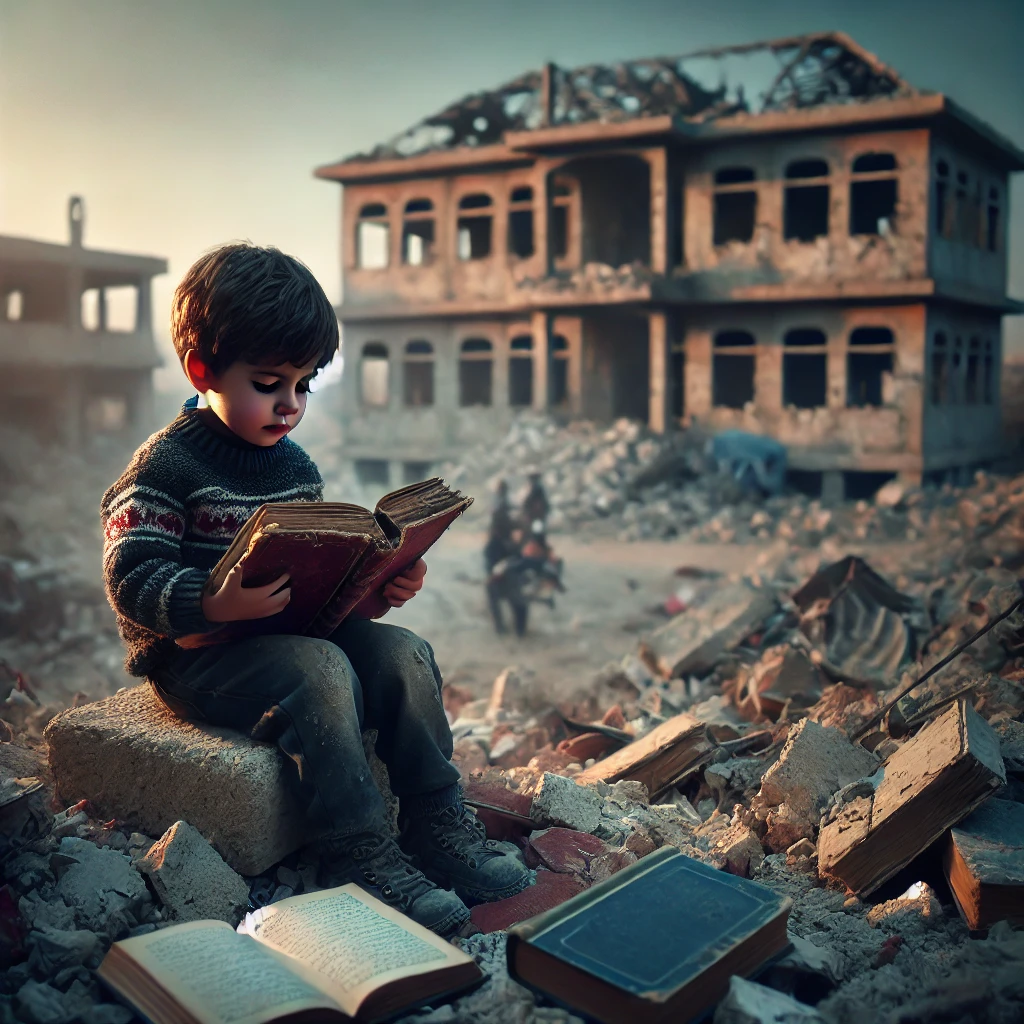Childhood is one of the most crucial stages in shaping an individual’s personality and establishing psychological and social foundations. Schools play a fundamental role in developing a child’s cognitive and emotional abilities. However, wars and armed conflicts directly impact children’s lives, and one of the most severe effects is the deprivation of education, which leaves deep psychological scars that threaten their future and mental stability.
Psychological Effects of School Deprivation During War
1. Persistent Stress and Anxiety: Children deprived of education experience constant instability and fear due to the surrounding circumstances, affecting their mental health and leading to disorders such as excessive anxiety and stress.
2. Depression and Loss of Hope: Without school as a space for learning and interaction, children may feel socially isolated and frustrated, increasing the likelihood of depression and loss of hope for the future.
3. Decline in Social Skills: Schools teach children how to communicate with others and solve problems peacefully. However, when deprived of education, children struggle with weak social skills and difficulties in forming friendships.
4. Cognitive and Intellectual Decline: The interruption of education leads to a decline in a child’s academic level, negatively impacting their cognitive and intellectual abilities, making it difficult for them to resume education later on.
5. Increased Risk of Deviance and Violence: In the absence of a school environment, children become more vulnerable to negative behaviors such as violence and delinquency due to excessive free time and lack of educational guidance.
Possible Solutions to Mitigate Psychological Effects
1. Providing Alternative Educational Options: Alternative learning methods such as online education or setting up temporary classrooms in safe areas can help ensure the continuity of education.
2. Psychological and Social Support: Offering psychological support sessions for children to help them cope with negative emotions and educating parents on how to provide emotional support for their children.
3. Reintegrating Children into a Safe Environment: Creating safe spaces for children to engage in educational and recreational activities helps restore their sense of security and stability.
4. Involvement of Humanitarian Organizations: Strengthening the role of local and international organizations to provide educational and psychological support for war-affected children, ensuring a nurturing environment for their growth.
5. Enhancing Community and Family Roles: Local communities should unite to compensate for the lack of education by initiating community-based programs aimed at teaching and supporting children.
The impact of school deprivation during wars is not limited to academic loss but extends to the psychological and social well-being of children. This calls for urgent action to mitigate these negative effects. Education is a fundamental right for every child, and providing alternative solutions and psychological support is essential to ensuring a more stable future for them. Investing in children’s mental health and education is an investment in the future of entire societies and a shared responsibility that must be upheld by all.





